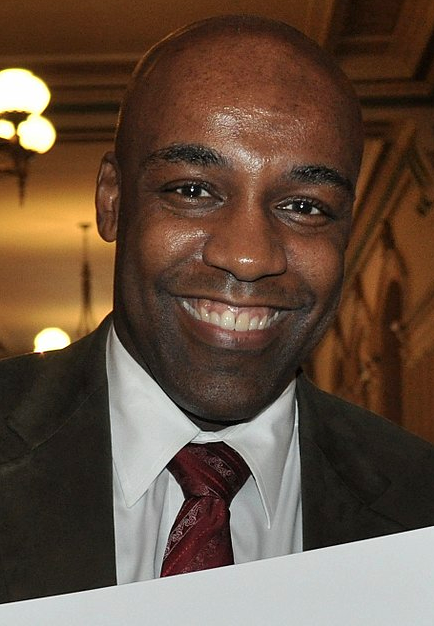 CHICAGO – Attorney General Kwame Raoul today led a coalition of 34 attorneys general in announcing a settlement with Santander Consumer USA Inc. (Santander) that includes approximately $550 million in relief for consumers and ensures future protections for consumers with subprime auto loans. The settlement resolves allegations that Santander violated consumer protection laws by exposing consumers with subprime auto loans to unnecessarily high levels of risk and knowingly placing these consumers into auto loans with a high probability of default.
CHICAGO – Attorney General Kwame Raoul today led a coalition of 34 attorneys general in announcing a settlement with Santander Consumer USA Inc. (Santander) that includes approximately $550 million in relief for consumers and ensures future protections for consumers with subprime auto loans. The settlement resolves allegations that Santander violated consumer protection laws by exposing consumers with subprime auto loans to unnecessarily high levels of risk and knowingly placing these consumers into auto loans with a high probability of default.
Today’s settlement stems from a multistate investigation of Santander’s subprime lending practices. In March 2015, the Illinois Attorney General’s office led the coalition in opening the investigation into Santander, the largest subprime auto financing company in the country, after receiving an increase in consumer complaints related to subprime auto loans.
Get The Latest News!
Don't miss our top stories and need-to-know news everyday in your inbox.
“Santander knowingly exposed borrowers to unnecessary risk and placed them into loans with a high probably of default,” Raoul said. “The company’s actions hurt thousands of consumers. Today’s settlement holds Santander accountable and sets an important precedent by requiring a major player in the subprime auto lending industry to factor a consumer’s ability to pay the loan into its underwriting.”
Based on the multistate investigation, the coalition alleges that Santander, through its use of sophisticated credit scoring models to forecast default risk, knew that certain segments of its population were predicted to have a high likelihood of default. Santander exposed these borrowers to unnecessarily high levels of risk through high loan-to-value ratios, significant back-end fees, and high payment-to-income ratios. The coalition also alleges that Santander’s aggressive pursuit of market share led it to underestimate the risk associated with loans by turning a blind eye to dealer abuse and failing to meaningfully monitor dealer behavior to minimize the risk of receiving falsified information, including the amounts specified for consumers’ incomes and expenses. Finally, the coalition alleges that Santander engaged in deceptive servicing practices and actively misled consumers about their rights, and risks of partial payments and loan extensions.
Under the settlement, Santander is required to provide relief to consumers and, moving forward, is required to factor a consumer’s ability to pay the loan into its underwriting.
Santander will pay $65 million to the 34 participating states for restitution for certain subprime consumers who defaulted on loans between Jan. 1, 2010 and Dec. 31, 2019. For consumers with the lowest quality loans who defaulted as of December 31, 2019 and have not had their cars repossessed, Santander is required to allow them to keep their car and waive any loan balance, up to a total value of $45 million in loan forgiveness. Santander will also pay up to $2 million for the settlement administrator who will administer restitution claims, and pay an additional $5 million to the states.
The settlement also includes significant consumer relief by way of loan forgiveness. In all, Santander has agreed to waive the deficiency balances for certain defaulted consumers, with approximately $433 million in immediate forgiveness of loans still owned by Santander, and additional deficiency waivers of loans that Santander no longer owns but is required to attempt to buy back.
Going forward, Santander cannot extend financing if a consumer has a negative residual income after taking into consideration a list of actual monthly debt obligations. Santander is also required to test all loans that default in the future to see if the consumer, at the time of origination, had a negative income. The test must include an amount for basic living expenses. If the loan is found to be unaffordable and the consumer defaulted within a certain amount of time, Santander is required to forgive that loan.
Additionally, Santander is barred from requiring dealers to sell ancillary products, such as vehicle service contracts. Santander will also implement steps to monitor dealers who engage in income inflation, expense inflation, power booking, and Santander will enact additional documentation requirements for those dealers. Further, Santander will no longer allow problematic dealers to waive loan documentation requirements on a consumer’s income and expenses. Finally, Santander will maintain policies and procedures for deferments, forbearances, modifications and other collection matters that all employees must follow.
Joining the Illinois Attorney General’s office in the settlement are the attorneys general of California, Maryland, New Jersey, Oregon and Washington, who comprise the executive committee; as well as the attorneys general of Arizona, Arkansas, Connecticut, the District of Columbia, Florida, Georgia, Hawaii, Indiana, Iowa, Kansas, Kentucky, Louisiana, Maine, Michigan, Minnesota, Nebraska, New Hampshire, New Mexico, New York, North Carolina, Pennsylvania, Rhode Island, South Carolina, Tennessee, Utah, Virginia, West Virginia, and Wyoming.
More like this:
